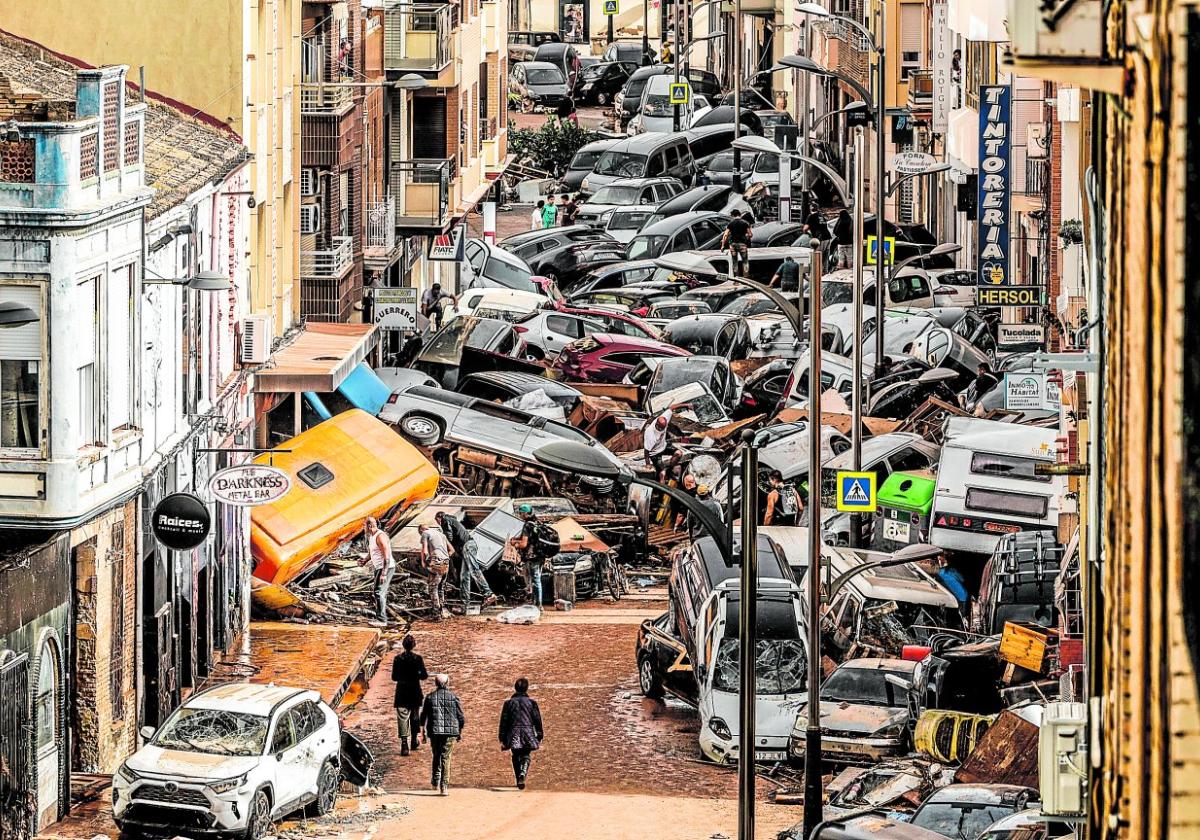

Sections
Highlight

Neil Hesketh
Friday, 27 December 2024
As Christmas cheer disappears into the rearview mirror, thousands of people south of Valencia city are still facing 2025 without homes, businesses or any sense of normality. The biggest event to mark Spain in 2024 has been the fateful evening of 29 October when ferocious rainfall left normally dry riverbeds unable to cope, flooding large areas and sweeping away people's lives.
Across Spain 231 people died, 223 of whom were in Valencia province. The rains came from an isolated low-pressure storm known as a 'Dana' - from the initials of its description in Spanish (depresión aislada en niveles altos). It is a fairly common phenomenon in Mediterranean areas, particularly in the autumn. But after a long period of drought, this year has been especially intense. In one place, Chiva, almost 80cm of rain fell in one day.

What was shocking for Spain and the world was the news that, well into the 21st century, those people hit could not have been alerted to the full risk in time, despite a red weather warning being in place for that day.
By the time residents in working-class towns such as Paiporta or Catarroja received a noisy message on their mobile phones, water was already some metres deep. This was compounded by a feeling that local, regional and national governments were far too slow afterwards to realise the scale of what had happened.
And so, as affected places fought to clean up the mud and find and bury their dead, another, less dignified fight was taking place alongside - between the politicians of different parties trying to justify their action (or inaction) to the public.
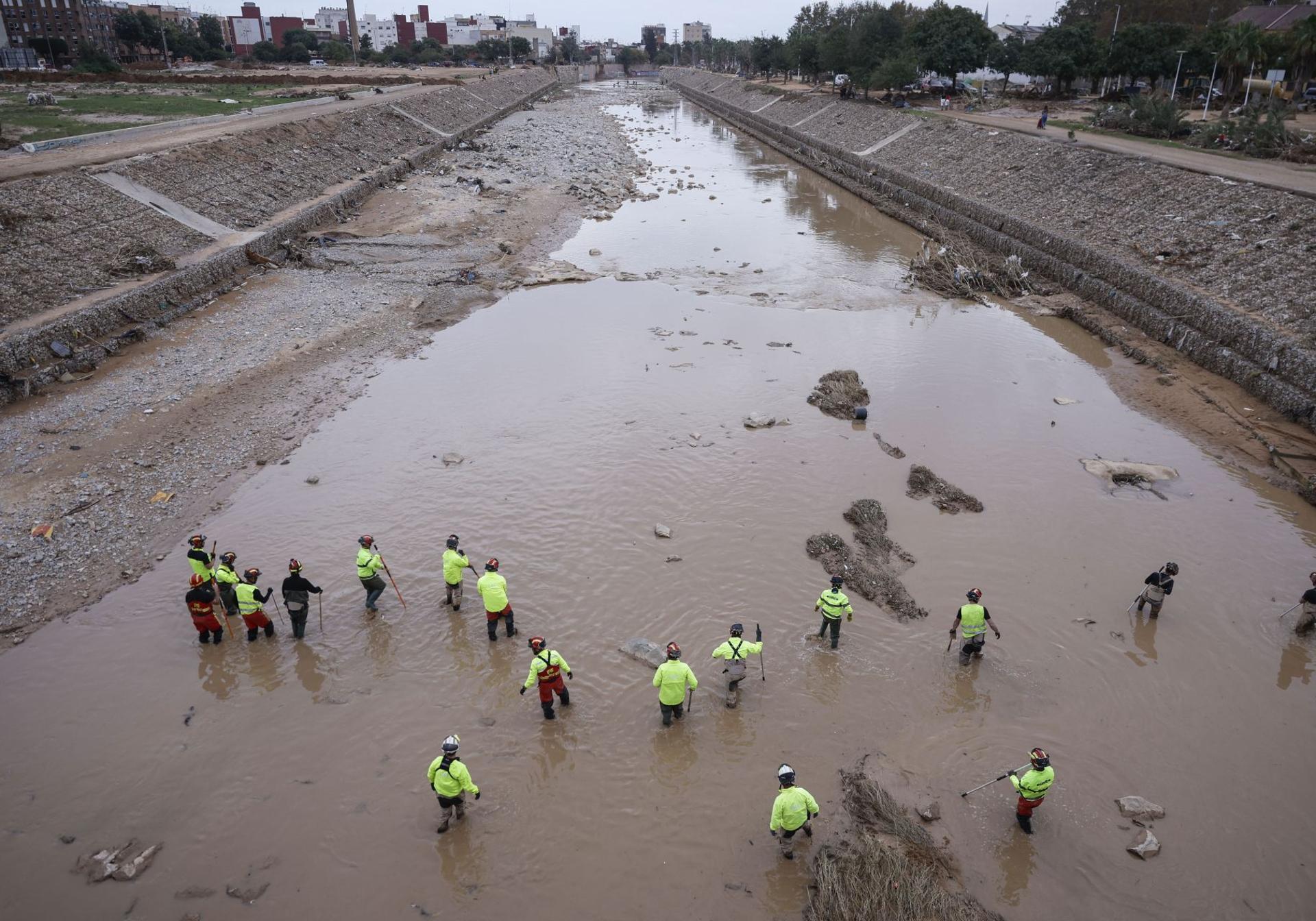
As 2024 closes, there are many questions still unanswered about those events: why were residents told so late?; did the (national government's) environment officers monitoring water flow fail to properly tell the (regional government's) emergency team?; why did the president of Valencia, Carlos Mazón, spend hours on a long lunch with rain warnings in place; why did his regional interior minister only find out mobile phone alerts were possible from her officials the day of the tragedy?; why did central government not intervene and declare a national emergency and instead watch the regional government squirm overseeing the disaster relief? And many more.
There are bigger questions too which Spaniards have been asking themselves; why were planned flood-relief measures for the worst-hit river shelved by central government; and why had so much building taken place on obvious flood plains across the country?
While scenes of tension were widely reported - the King and Queen were hit by mud from protesting locals on an early visit there - there were also scenes of huge solidarity. Thousands of volunteers swarmed in from far and wide to lend a hand and the men and women of the emergency services and armed forces work tirelessly still, many over Christmas and New Year.
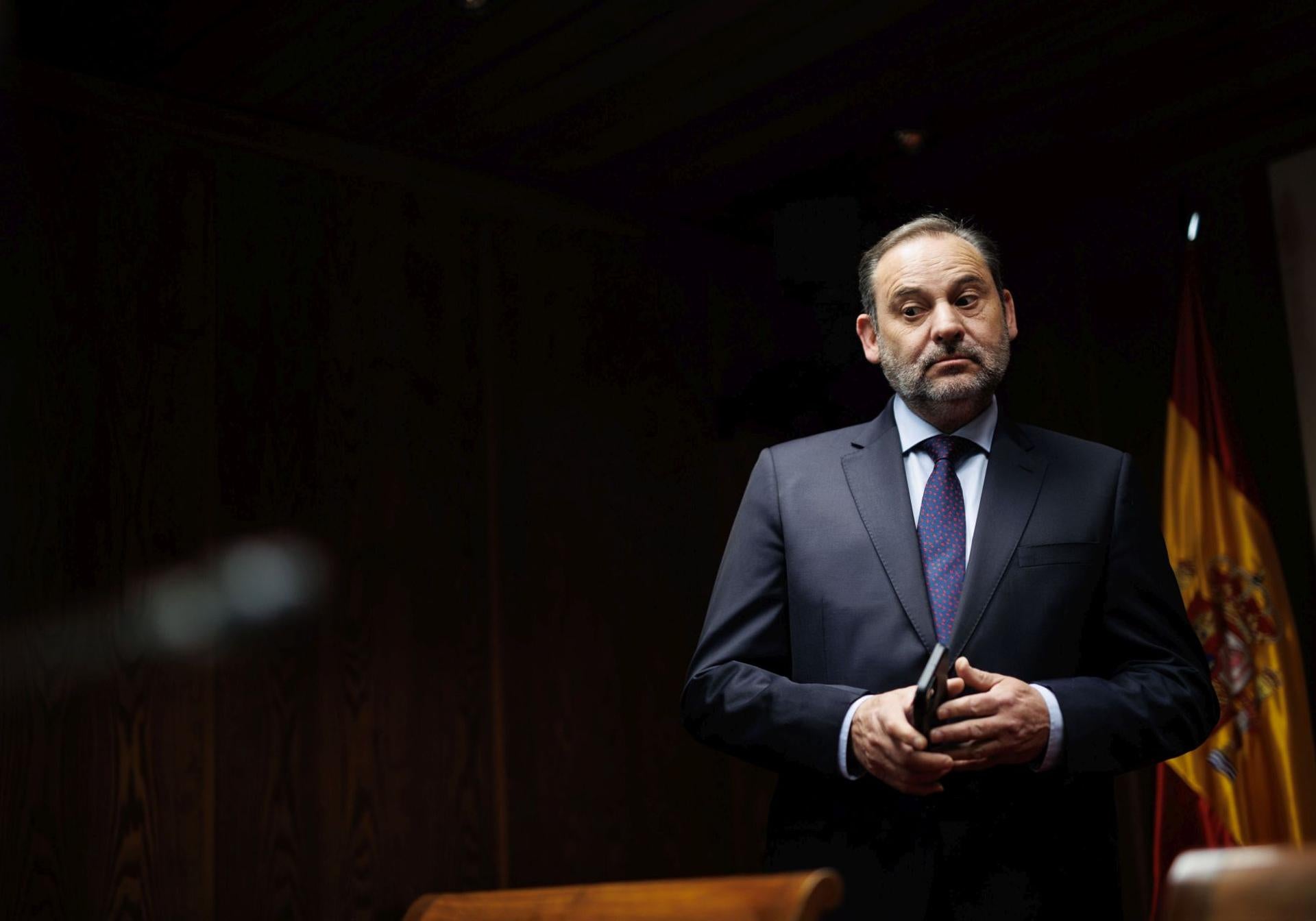
If people in Spain had unanswered questions over Valencia this year, they had almost as many about the goings on among the politicians of the ruling Socialist party nationally.
By Christmas, there were so many logs on the fire of allegations against some in his government, it looked harder for a normally flameproof Prime Minister Pedro Sánchez to resist the heat in 2025.
On one side, the growing Koldo case, with accusations of serious corruption against former top minister and PSOE party boss José Luis Ábalos. Several other top PSOE figures have been mentioned.
There are also accusations that the head of public prosecutions - a political appointee - leaked personal tax information about the partner of the leader of the Madrid regional government. The top lawyer's mobile phone messages have been wiped for around the time it was meant to have happened, we learned last week.
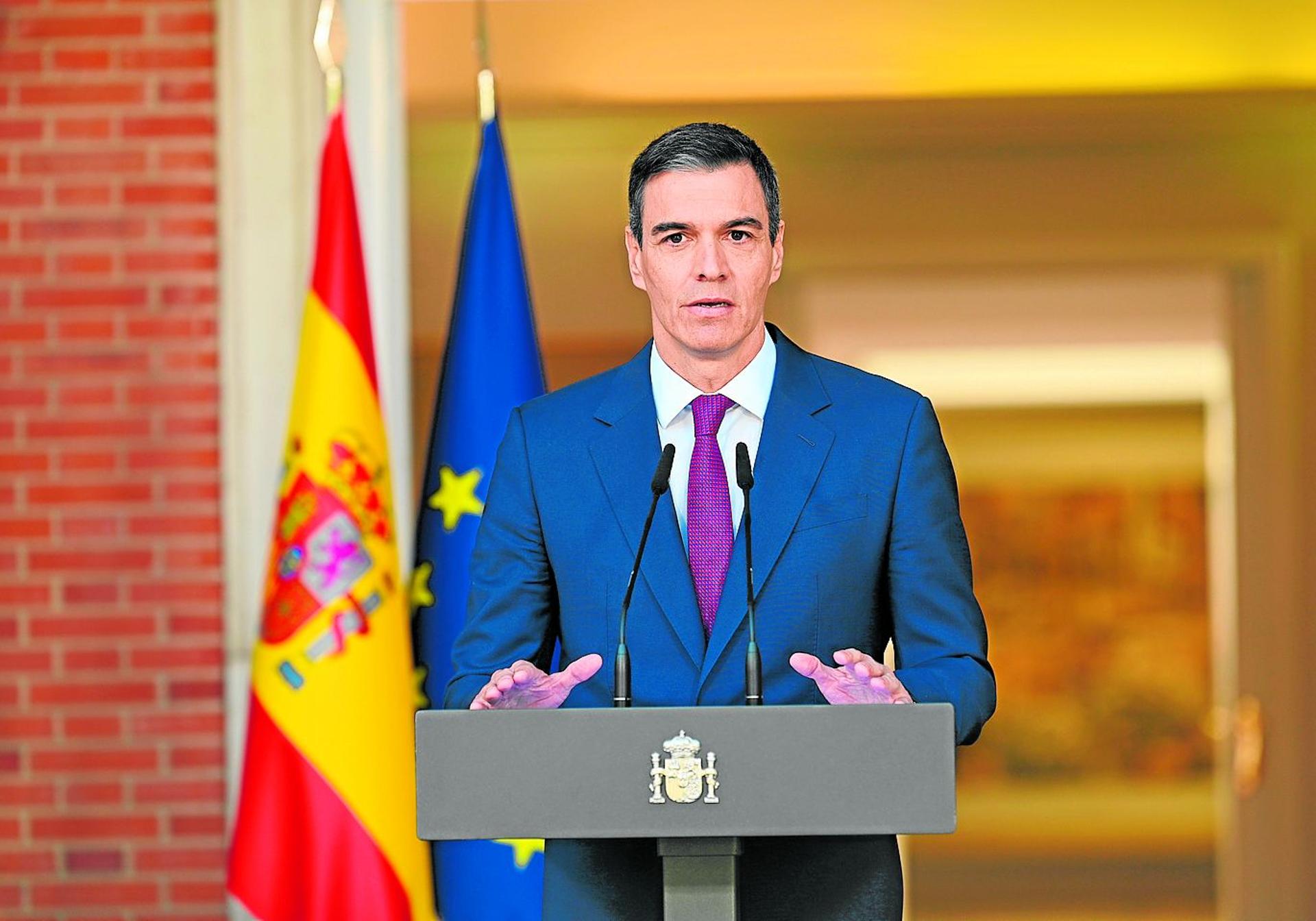
On the other hand, Sánchez is facing allegations against his family. His wife, Begoña Gómez, is being investigated over possibly benefiting inappropriately from the university masters programmes she ran. While his brother, a classical musician, is under investigation over maybe getting a local government job in dubious circumstances.
All those hit by the allegations deny them. The prime minister, despite a handful of internal critics, puts the inquiries down to a witch hunt fuelled by right-wing parties. In 2025 we should have some more answers.
It was a happier year for those politicians from Catalonia involved in the illegal declaration of independence in 2017. The national government's controversial amnesty law for them came into effect on 11 June. An estimated 350 people benefited from it.
One key player, who did not get as much as he hoped, was the former Catalan president, Carles Puigdemont. Judges ruled that the charge of embezzlement still live against him did not count in the amnesty. So he was forced to stay in self-exile in Belgium to avoid facing justice in Spain.
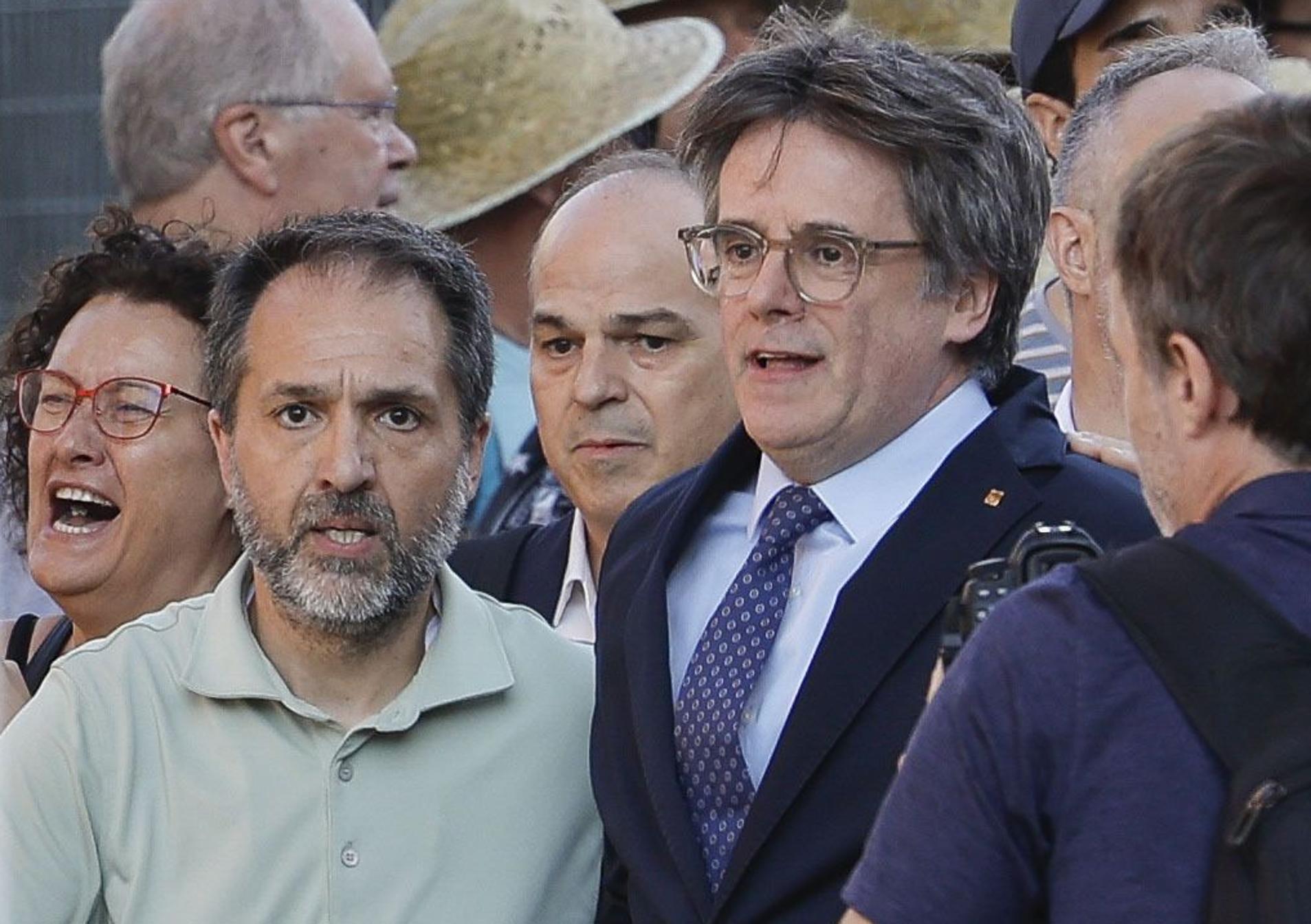
Puigdemont did stand - remotely - in this spring's Catalan election for the nationalist Junts party again, although not winning power. He travelled in secret to Barcelona in August for a showpiece declaration at the doors of the regional parliament as it was about to meet again - before being spirited away immediately to avoid arrest. Parties on the right were outraged by the blatant cheek while government parties were cryptically vague on the subject. The spectre of Catalan nationalism was still never far from haunting national politics in 2024 therefore.
The good news for the Socialists was they took control of Catalonia under Salvador Illa in the same regional elections.

With all this going on, foreign residents in Spain could be forgiven for feeling that national political manoeuvres were not something to affect them. However there were times this year, of course, that decisions in Madrid impacted on expat life.
At the last minute Ministers decided to extend for a further six months into 2025 the free rail travel on Cercanías that many have been enjoying but the government continues to talk tough on the number of holiday rental flats spreading in private residential blocks.
One decision to upset some, especially in the real estate sector, was the planned end of the so-called golden visas, which give easy residency rights to non-EU applicants spending over half a million euros on property. The government said stopping this would relieve pressure on housing, although many experts disagreed.
Noticia Patrocinada
Publicidad
Nuria Triguero | Málaga
Sara I. Belled, Clara Privé y Lourdes Pérez
Clara Alba, Cristina Cándido y Leticia Aróstegui
Esta funcionalidad es exclusiva para suscriptores.
Reporta un error en esta noticia
Comentar es una ventaja exclusiva para registrados
¿Ya eres registrado?
Inicia sesiónNecesitas ser suscriptor para poder votar.